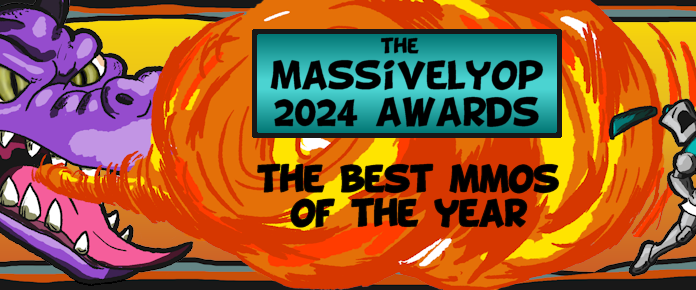
Back in May, Blizzard’s attempts to thwart gold-selling company Bossland GmbH — perhaps better known to gamers as the unit behind botting group HonorBuddy — were stymied in a German court. Blizzard’s request for an injunction against Bossland was denied, and the studio was ordered to pay costs in the case. Bossland subsequently claimed it was shutting down its botting tool all the same, although it’s apparently still up and running.
Did you think it ended there? It never ends there. This week, Blizzard filed a new complaint in a California federal court alleging that one James Enright, along with unnamed co-conspirators, has violated Blizzard’s copyrights and done the company serious financial harm with the HonorBuddy, DemonBuddy, and StormBuddy bots that plague World of Warcraft, Diablo III, and Heroes of the Storm.
Here’s Blizzard’s claim, according to the documents posted by TorrentFreak:
By this action, Blizzard seeks to put a stop to, and obtain redress for, the willful and deliberate conduct of Defendant James Enright (“Enright”) and those working in concert with him. Enright is an individual who, in collaboration with an international team of developers and distributors, has been instrumental in creating, programming, marketing, distributing, maintaining, and updating, for profit, a portfolio of malicious software products that are designed to harm Blizzard and its games. More precisely, Enright’s software products, known as “HonorBuddy,” “DemonBuddy” and “StormBuddy,” (the “Bots”) are video game “bots” that allow users to automate gameplay and thereby manipulate the Blizzard Games to their competitive advantage.
2. The Bots created by Enright and his team have caused, and are continuing to cause, massive harm to Blizzard. Blizzard’s business depends upon its games being enjoyable and balanced for players of all skill levels, and Blizzard expends a massive amount of time and money to ensure that this is the case. The Bots that Enright has programmed and helps distribute destroy the integrity of the Blizzard Games, alienating and frustrating legitimate players, and diverting revenue from Blizzard to Defendants. As a result of Enright’s conduct, Blizzard has lost millions or tens of millions of dollars in revenue and in consumer goodwill. Meanwhile, Enright and his team have been massively and unjustly enriched at Blizzard’s expense, having received hundreds of thousands (if not millions) of dollars in profits from the sale of the Bots.
3. In creating and distributing the Bots, Enright has engaged in numerous acts of copyright infringement. He also has knowingly and intentionally violated the limited license he entered into with Blizzard pursuant to which he obtained access to the Blizzard Games, and he has encouraged and induced others to do the same. Enright knows that his conduct is unlawful and is causing ongoing harm to Blizzard. For that reason, he has carefully sought to conceal his identity, operating only through his alias “Apoc.” He also has cautioned users of the Bots that Blizzard is “scanning” for his software and thus he will continually modify the bots to avoid detection by Blizzard.
4. Enright has no credible defense to his unlawful conduct. Blizzard is entitled to monetary damages, injunctive and other equitable relief, and punitive damages against Enright and those working in concert with him.
It gets weirder. Bossland CEO Zwetan Letschew claims to TorrentFreak that Enright is neither a Bossland employee nor the creator/owner of the allegedly infringing bot programs; Letschew suggests those named in the lawsuit are “people [who] are at best random freelancers.” Asserting that Bossland still holds trademarks to the bot programs, he gets in one last dig: “I find it funny, no not even funny, but ridiculous for a company of this size, to go after and mention publicly people, that are at best random freelancers, keeping in mind that they sued the creator of the software in question in Germany.” Enright, according to Blizzard’s filing, is a resident of New Jersey, which might shed light on the selection of the California venue, as might the section in the lawsuit that expresses frustration over the defendants’ propensity for “fictitious names”:
The defendants may include individuals whose real identities are not yet known to Blizzard, but who are acting in concert with one another, often in the guise of Internet aliases, in committing the unlawful acts alleged herein. Blizzard will seek leave to amend this complaint to state their true names and capacities once said defendants’ identities and capacities are ascertained. Blizzard is informed and believes, and on that basis avers, that all defendants sued herein are liable to Blizzard as a result of their participation in all or some of the acts set forth in this complaint (all of the aforementioned defendants collectively are referred to herein as “Defendants”).
[…]Enright actively participates in the creation, maintenance, promotion, and distribution of the Bots, including on and through the websites […]. For example, Enright regularly communicates with purchasers and users of the Bots via “message boards” or “forums” contained on Buddy Websites. Using these message boards, Enright offers technical support and advice to potential or actual purchasers, including advice on how to avoid being caught by Blizzard, how to download and install the Bots, and how to more effectively use the Bots to cheat in the Blizzard Games. Enright regularly solicits and receives feedback from users of the Bots, which he incorporates in order to prevent Blizzard from detecting and preventing use of the Bots.
This isn’t the first Blizzard legal battle of the year, and it won’t be the last. Blizzard has already settled an Overwatch trademark dispute, sued over a DOTA clone, and locked horns with Snail Games over Taichi Panda.













